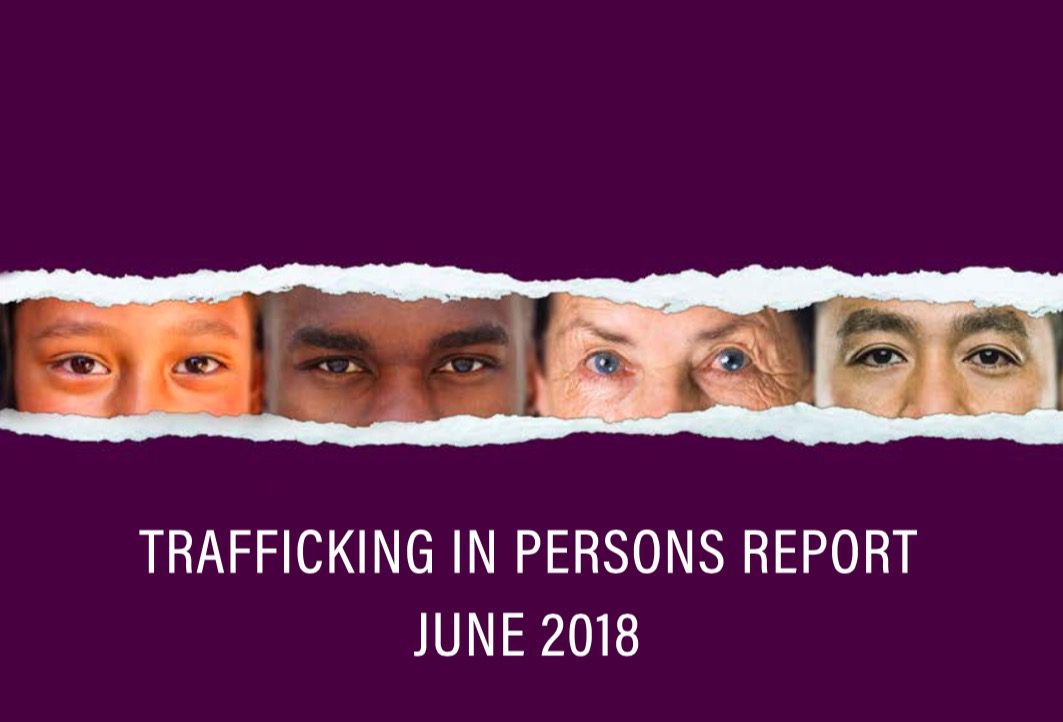
Trafficking in Persons Report 2018
Human trafficking, also known as modern slavery, is a global threat that touches nearly every corner of the world. The State Department’s annual Trafficking in Persons (TIP) Report not only captures the challenges governments and societies face in fighting human trafficking, but highlights effective responses to hold perpetrators accountable, protect victims, and prevent others from enduring this devastating crime. This report serves as a resource for diplomatic engagement and a roadmap to improve anti-trafficking efforts in the United States and around the world.
Governments bear primary responsibility to combat human trafficking, which is why the report’s country narratives assess government efforts. Yet, national governments cannot succeed alone; actions at the local level play a critical role. By training and empowering local leaders to protect their communities from traffickers and contribute to broader anti-trafficking efforts, governments and others can multiply the effectiveness of their own efforts. The challenges front-line leaders in civil society, the private sector, and faith-based organizations face are often regionally and contextually specific, requiring locally informed and developed strategies. When combined, national and local efforts can result in greater awareness, targeted interventions, and more effective strategies to combat modern slavery.
This year my visits to two rural communities in Ghana confirmed my belief in the central role of informed, resilient communities. In these villages I observed how traditional leaders and elders worked with volunteers and social workers to develop a common understanding of the dangers of human trafficking and a proactive community approach to mitigate those dangers. These inspiring local leaders described how they learned about trafficking from a Ghanaian NGO, taught others, and took steps to identify suspected child trafficking cases. These communities, and others like them, removed more than 180 children from forced labor and prevented numerous others from suffering such exploitation. The Ghanaian volunteers I met vividly reminded me that when communities are aware and their efforts coordinated, justice and freedom can prevail.
This year’s report, while underscoring remaining challenges and gaps in government efforts, also shines light on progress through victim-centered and trauma-informed anti-trafficking policies across the spectrum of governance. I applaud their efforts and encourage them to do even more in the coming year.
Assembling the annual TIP Report requires support from many organizations, individuals, and partners. I am especially grateful to the dedicated staff of the Office to Monitor and Combat Trafficking in Persons and the numerous other Department offices, U.S. embassies, and consulates around the world who work tirelessly to bring this report to life. I look forward to continuing frank exchanges with government officials, nongovernmental representatives, and survivors on the recommendations contained in this report and to increasing our collective efforts in the pursuit of a world without modern slavery.
Sincerely,
Kari Johnstone
Read or download report here.
